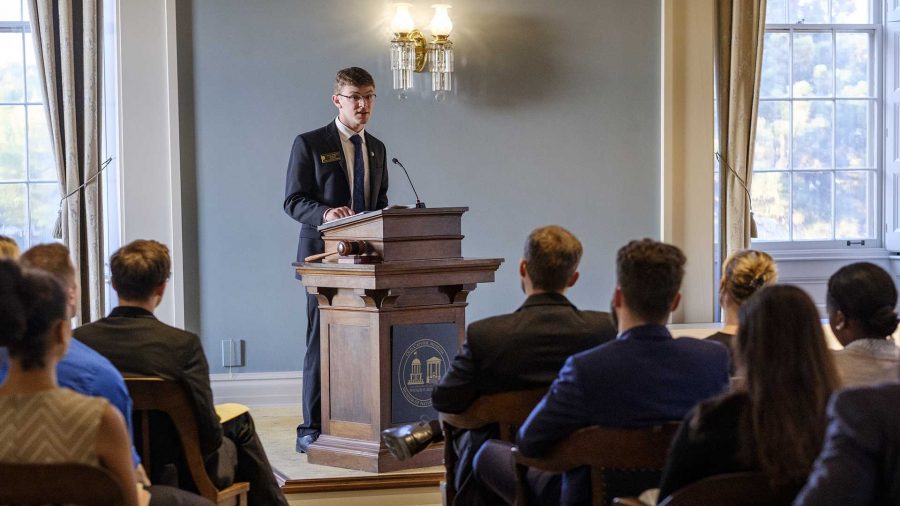By Kayli Reese
[email protected]
When it comes to being safe in a college-party culture, the Iowa City community continues to try to ensure a safe city for University of Iowa students.
One way the University of Iowa Student Government works toward this goal is by advocating for medical amnesty in the state.
Mitchell Dunn, the UISG government relations liaison, said student government has worked and advocated for medical amnesty since fall of 2016 and is continuing to do so this year.
Medical amnesty, he said, provides legal protection for underage individuals who have participated in illegal acts and need medical assistance. In the United States, he said, 37 states have the law, including Iowa’s Midwest neighbors.
“It’s a commonsense policy that saves lives,” Dunn said.
Last fall, he said, UISG passed a resolution in support of medical amnesty. The Iowa State Student Government also has helped bring the resolution to the state Legislature, he said.
This resolution was taken to the Iowa Senate, he said, where the bill passed 49-0 last spring. When the bill reaches the House of Representatives, Dunn said, UISG hopes the bill will pass, the governor will sign it, and medical amnesty will go into law.
The Iowa City police also work toward safer party habits with their Party Patrol.
That patrol has been around for the past few years, said police Sgt. Scott Gaarde.
“It’s an initiative to help educate the public,” he said.
RELATED: IC party patrols arise with fall
When the police receive a call about unruly neighbors, Gaarde said, officers will go to the residence in question to not only quiet down the rowdiness but to explain the rules and expectations that go into being a good neighbor.
Tanya Villhauer, the associate director for harm reduction and strategic initiatives for Student Life, said all UI students should be aware of the patrol.
“We send a mass email to all University of Iowa students as a way to remind them to be good neighbors and to think about those living around them if they decide to have a social gathering at their place,” she said.
When officers are first called to a residence, Gaarde said, no citations are given out. Instead, he said, the experience is meant to inform people on the laws and rules of living in an area with neighbors and enhance the quality of life in a neighborhood.
It is hard to measure the success of the Party Patrol in preventing large gatherings, he said. Because there is a difference between speaking with a small group of friends on a front porch and a party of more than 200 people, he said, the rate of prevention is difficult to measure.
Far fewer citations have been given to people since the Party Patrol began talking to Iowa City residents, Gaarde said. If officers must respond to complaints numerous times, he said, a citation will be issued. In most cases, he said, officers never have to respond to the same residence twice.
Being engaging and social with friends is one thing, Gaarde said, but ensuring things do not get out of hand is important for the safety of all.
“The safety and well-being of students is paramount,” Gaarde said.



